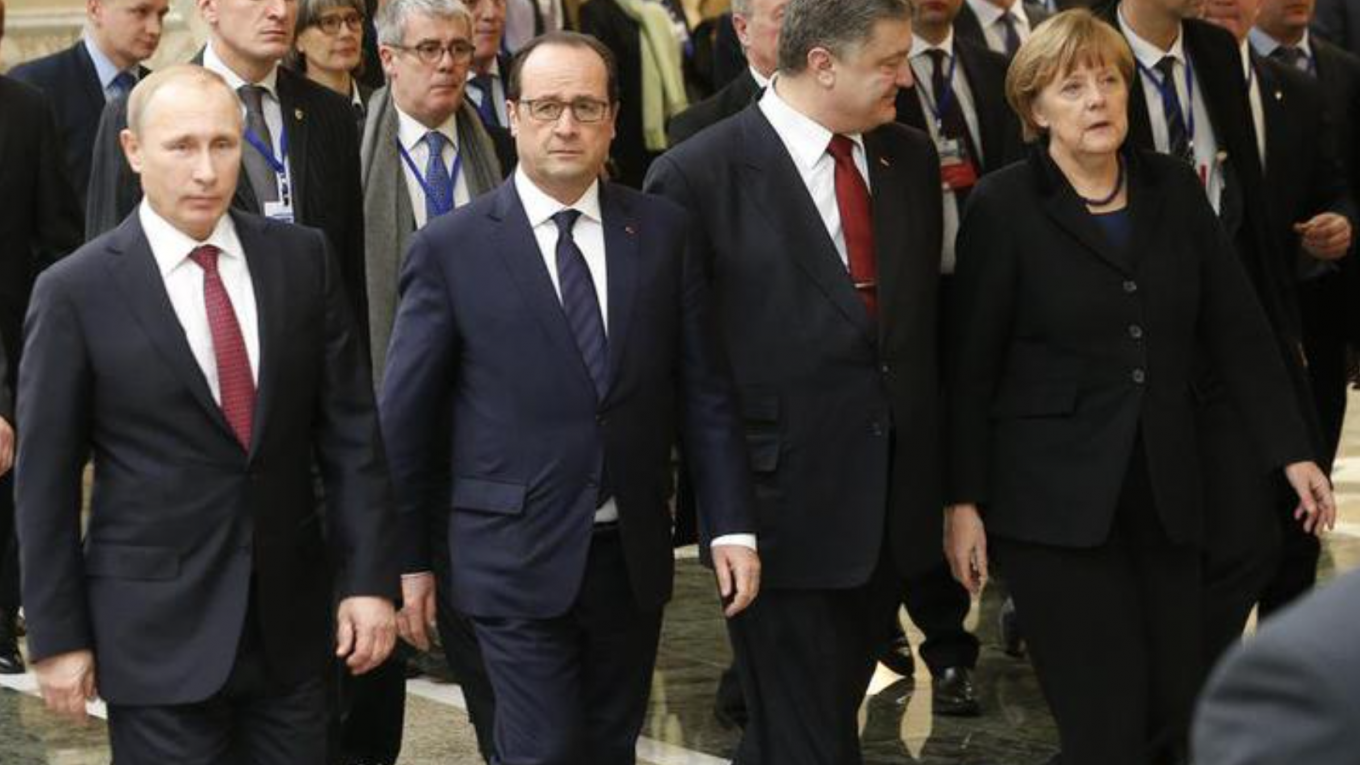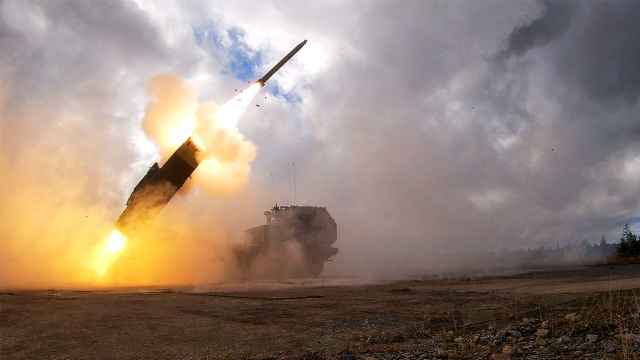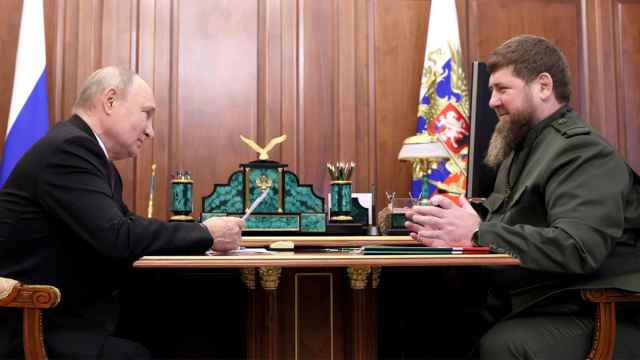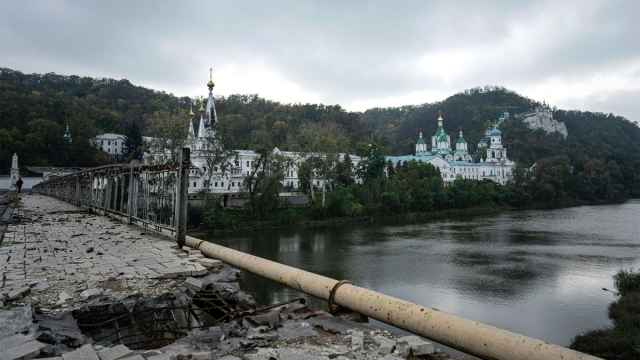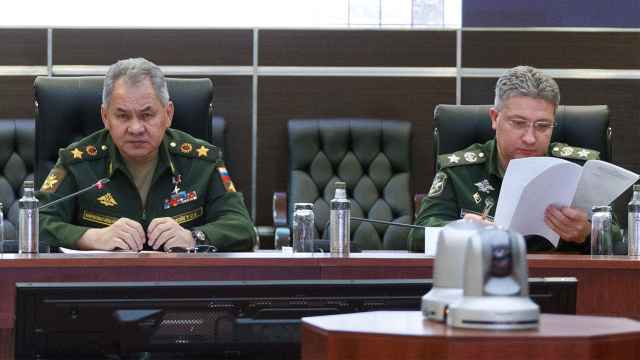The bluster on all sides suggested the meeting was unlikely to even happen. Until the eve of talks, Kremlin press secretary Dmitry Peskov maintained Russian participation remained “under question.” In the British and European parliaments, deputies condemned “Russian war crimes” in Syria. In Paris, just a week earlier, the normally milquetoast President Hollande engineered a prideful Russian cancellation of a state visit.
The fact that Putin even agreed to head a delegation to Berlin to discuss the Ukrainian peace process -- the first “Normandy Format” meeting in a year -- could thus be considered a breakthrough. Former Kremlin aide Aleksey Chesnakov, who remains close to Moscow’s main Ukraine negotiator, Vladislav Surkov, confirmed to the Moscow Times that the decision to go had been “left to the very last moment — once the agenda had been agreed and Vladimir Putin could be certain everyone would attend.”
But few expect any real progress on Ukraine or broader Russia-West relations.
Ahead of the meeting, German Chancellor Angela Merkel warned assembled journalists “not to expect miracles.” Each negotiating side has carefully laid out mutually exclusive “red lines,” which have changed little in a year.
The Ukrainians say they cannot deliver on political concessions without demilitarization. Ahead of the Berlin talks, a written statement from President Petro Poroshenko’s office underlined the “impossibility” of “switching to the political package … without hostage release and troop withdrawal.”
Meanwhile, the possibility of a Russian compromise on these points remains low, says Chesnakov: “They say they want the security commitments before dealing with political commitments, and that they’ll think something up later — but that isn’t a serious position.”
Thus, the most likely outcome of the Berlin talks will be mutual acceptance of the Minsk process’ continued failure. And mutual acceptance of their formal existence is a necessary bandage to prevent a return to all-out war.
The risk of escalation was underlined on Sunday Oct 16 by the news that Donetsk’s most controversial separatist commander, Arseny “Motorola” Pavlov, had been killed in a bombing at his apartment building.
A Russian citizen attracted to the glamour of war, Motorola had a reputation for brutality and torture. Slavik Gavyanets, one of sixteen Ukrainian prisoners captured at the end of the battle for Donetsk airport, told The Moscow Times that he had seen Pavlov execute a fellow prisoner of war.
Few in Ukraine will mourn Motorola. Yet the question of Kiev’s involvement in his death is, at best, an open one.
Leading separatist commanders were quick to point the finger. Alexander Zakharchenko, head of the self-declared Donetsk People’s Republic, claimed Poroshenko had “broken the ceasefire.” Plotnitsky, his counterpart in Luhansk, declared that “political assassinations have shown … Ukraine is choosing war.”
Plotnitsky’s words will have raised eyebrows locally, given his implication in the suspicious murders and "suicide" of several rebellious colleagues.
Motorola liked to live in the fast lane — whether literally, speeding around town on a flashy quad bike, or in his military and business dealings. It is not inconceivable that he was murdered over a local conflict. It was well known, for example, that Motorola was involved in the lucrative scrap metal business — one of the few growth industries in and around the destroyed Donetsk airport.
As with the burning of the Reichstag, however, we should perhaps look less at who did it, than at how the event will be used.
It is no secret separatist leaders find themselves in a difficult spot. They have an uncertain future, and have been denied the honour of “war heroes” bestowed to their Ukrainian counterparts, some of whom are even in parliament. Many are openly agitating for a new military push, a return to the times when they were important.
Moscow has recently shown little appetite for such demands. The Minsk agreements, twice forced on Ukraine at a time of military defeat, were largely to Russia’s advantage. They kept Ukraine locked in a cycle of dependence and conflict. The cost of new military adventures through a now fortified border were also considered unacceptably high — both in terms of casualties and relations with the West.
The recent breakdown in those relations ahead of the U.S. elections has changed that calculus somewhat. Restraining the temptation for mutual anger and frustration to turning back into full-scale war is now surely the main task for the Normandy foursome. Time will tell if they succeed.


